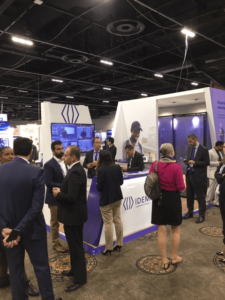“The database and its back-end ensure that each child getting a birth certificate is de-duplicated and given a unique identifier. This provides the Congolese government with a long-term solution for modern identity management.” – Debora Comparin, Senior Market Manager, IDEMIA

IDEMIA is partnering with a slew of organizations in an effort to modernize identity management practices in the Democratic Republic of Congo (DRC). The initiative marks the first use of the OSIA open-standard Identity Management platform, which was developed alongside the Secure Identity Alliance.
The OSIA platform was designed to prevent vendor-locking, encouraging governments to negotiate with multiple security providers. That, in turn, allows public organizations to incorporate the best (and safest) identity management technology without having to worry about restrictive contracts that would otherwise lock them into outdated tech.
To that end, the program in the DRC has two primary objectives. IDEMIA will be providing a Civil Identity database that will digitize the country’s existing Civil Registry, which is built with DIGITECH technology. It will also work to register the country’s 2.4 million undocumented children and issue 600,000 birth certificates to help meet the UN’s “One ID for all” goals.
“The database and its back-end ensure that each child getting a birth certificate is de-duplicated and given a unique identifier,” said IDEMIA Senior Market Manager Debora Comparin. “This provides the Congolese government with a long-term solution for modern identity management.”
In addition to DIGITECH, IDEMIA’s full partner lineup includes the United Nations Population Fund, France’s CIVIPOL, and the Catholic relief organization CARITAS. The initiative itself is one of several programs designed to raise identity inclusion on the continent.
Corroborating IDEMIA’s concerns regarding undocumented children, recent research from Yoti has identified the importance of infant registration, especially when it comes to healthcare.
Meanwhile, IDEMIA SVP Antoine Grenier explained why identity is a basic human right in an ID4Africa interview with FindBiometrics.

Follow Us